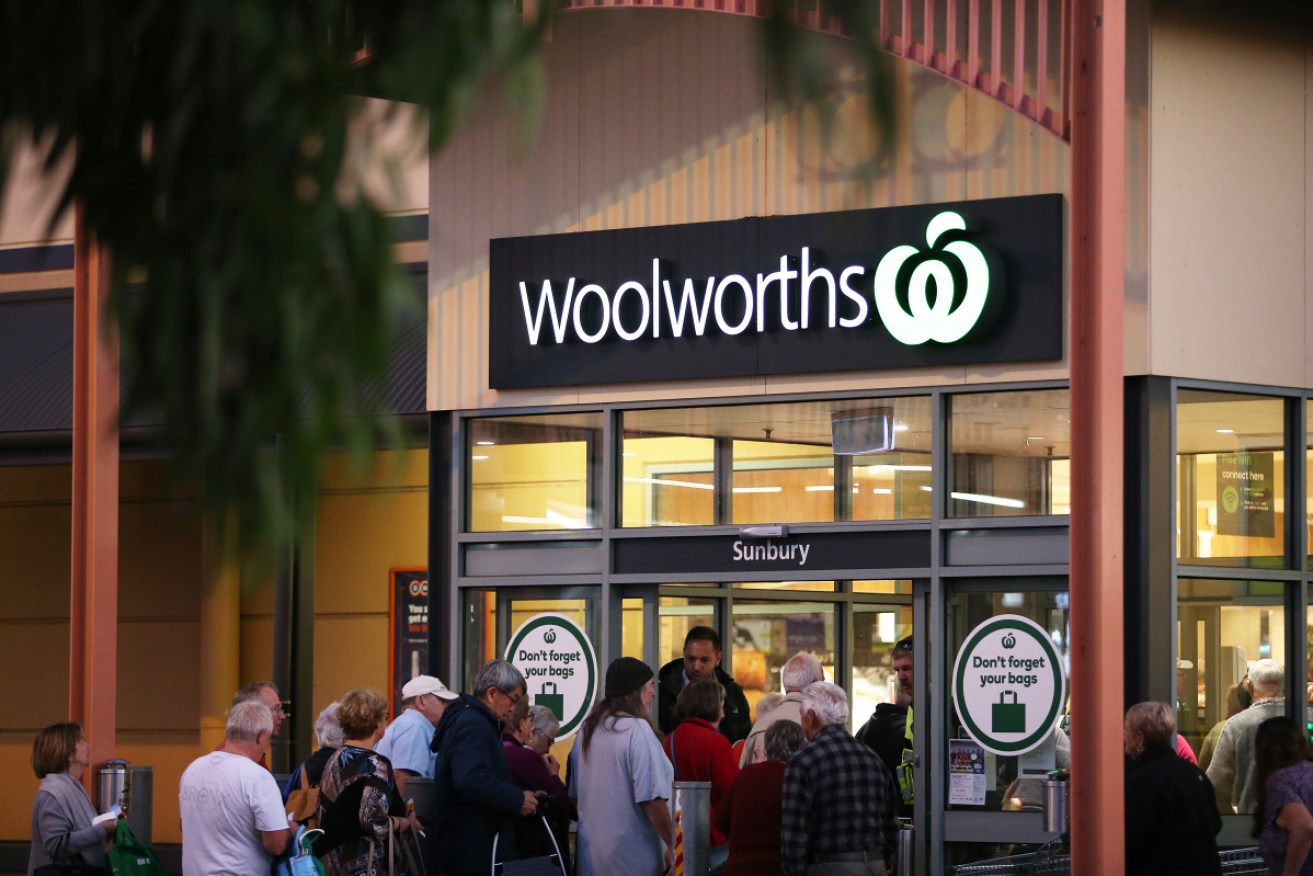Coronavirus supermarkets shake-up: What’s disappearing from shelves


Woolworths has slashed its number of in-store specials, while Coles has forfeited printing its catalogue. Photo: Getty
Supermarkets are being forced to cut promotions and products as the virus shutdown tightens supply lines and hits profit margins.
Woolworths this week confirmed it has ditched many of its regular weekly specials as it struggles to keep up with demand prompted by the coronavirus outbreak.
Coles has taken a similar path, winding back printing its catalogue, saying it doesn’t want to disappoint customers who might head in store specially looking for an advertised promotion.
Customers can start to see stock levels of initially sought-after items – like toilet paper – return to shelves, but there will still be empty shelves throughout the country’s supermarkets.
Queensland University of Technology associate professor Gary Mortimer has been doing the rounds of supermarkets daily for the past three weeks.
He told The New Daily things are beginning to return to normal, but the knock-on effect from COVID-19 was just beginning.
Did I miss something?
The food retail and consumer behaviour expert pointed to the meat department as a prime example.
Although products prepared in store are still in fine supply, we can start to see a shortage of pre-prepared meat and poultry items.
“There’s plenty of cows, there’s plenty of chooks but not plenty of people who are skilled to break down an animal (to meet the consumer demand), and that’s why we’re seeing less of these products on the shelves,” Professor Mortimer explained.
Cheese and chocolate lovers might also see gaps where their favourite products usually are, Deakin University’s Michael Callaghan said.
- Related: Mask rethink as research finds virus can be spread by talking and breathing
- Related: Keeping safe, healthy at the supermarket
Many of these products are made offshore – some in China – and the supply chains will start to feel the pinch of border shutdowns, Dr Callaghan said.
There’s also the risk in non-perishables; Australian favourites like packaged chips and biscuits.

Shelvers looking decidedly emptier than usual? You’re not imagining it. Image: TND
If a worker in a production factory was diagnosed with the coronavirus, the actions of the government could be swift and sharp – Tim Tams aren’t exactly an essential foodstuff.
“We could soon see some items disappear because producers and distributors are closing doors,” Dr Callaghan said.
There’s also a lot of whispers that fresh produce prices are being hiked, prompting accusations of price-gouging by the supermarkets.
As a temporary measure, we have reluctantly decided not to distribute our paper catalogue from this week. We know how important the catalogue is for planning so look out for a digital version next week with specials and recipes – https://t.co/Az9KcmLNWa
— Coles Supermarkets (@Coles) March 17, 2020
Dr Callaghan, a marketing and management lecturer and researcher, said it would be a hard link to prove.
At this time of year, fruit and vegetables usually experience a price hike as the seasons shift.
However, he pointed to the supply and distribution chain: If a farmer is also trying to keep their head above water, and prep for an uncertain future, they could very well be selling their products at a higher price.
That inflation is passed onto customers.
It’s just business, Dr Callaghan said.
“The longer this goes on, the less super supermarkets will be,” he said.
Karma comes biting
Before the coronavirus outbreak changed the world as we know it, Woolworths was already struggling to keep its books balanced, Dr Callaghan said.
The supermarket was in hot water with its shareholders and on the nose with consumers when it was revealed it owed $315 million to employees after systemic levels of wage theft were revealed.
“Woolworths does have a fairly strong reason for maximising profits and minimising costs because they’ve got to pay back all the wage theft they took from employees,” Dr Callaghan told The New Daily.
That’s part of the reason consumers might have noticed Woolies leading the way in ‘corona-washing’: Announcing business decisions that paint the company as a hero, such as dedicated community shopping hours, Dr Callaghan said.
Add that to the enormous costs all supermarkets have had to outlay to adapt to this societal shift – hiring more staff, upping distribution lines, finding extra warehouses for toilet paper – and that’s a lot of money to recoup.
As for Coles, it is taking the back seat and sitting back, watching.
“Coles hasn’t really come out and corona-washed their business at all,” Dr Callaghan said.
“And for me, that’s the wisest thing to do.”








